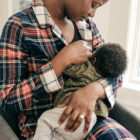Women's Health
My Queendom For The Candidate Who Takes On Women’s Health
|
When Amy Klobuchar gave birth a quarter century ago, her baby, who couldn’t swallow, was rushed to intensive care. Though her daughter was being tested and fitted with a feeding tube, Klobuchar, now a U.S. senator from Minnesota, was sent home. Klobuchar’s insurance required new mothers to be discharged within 24 hours of birth. Despite her daughter’s precarious health, Klobuchar’s time was up. The future Democratic presidential candidate checked into a nearby motel and wore a rut—still in her hospital gown—between her room and the hospital so she could pump breast milk for her newborn.


